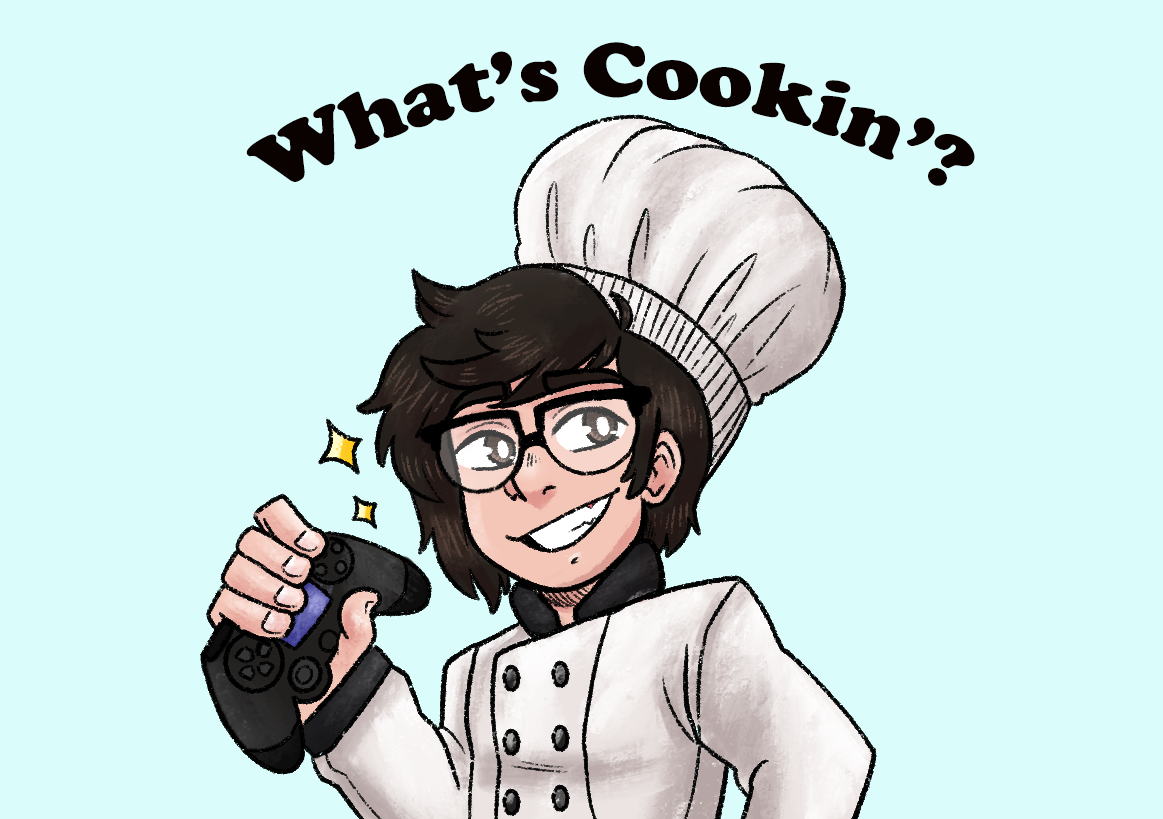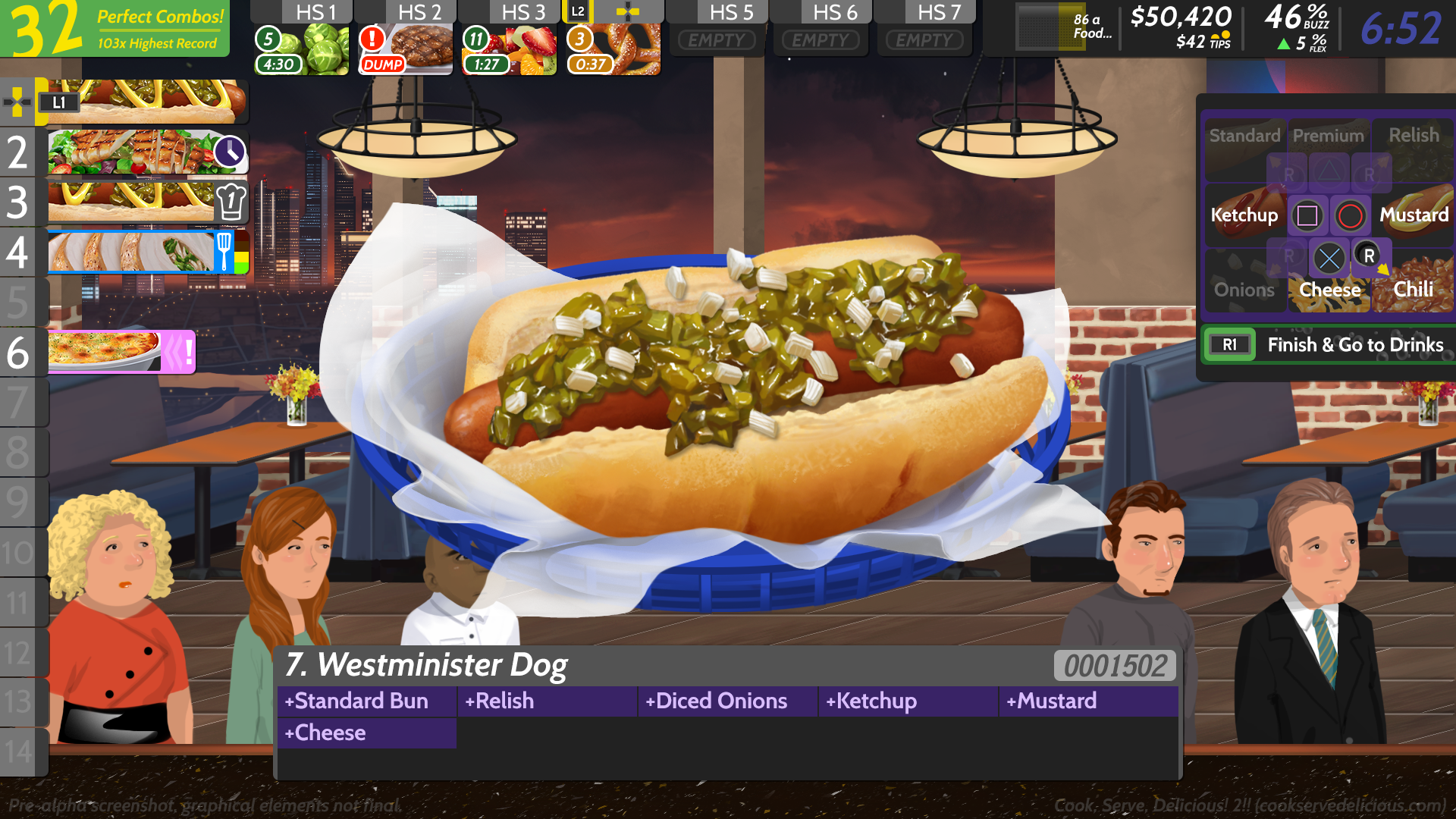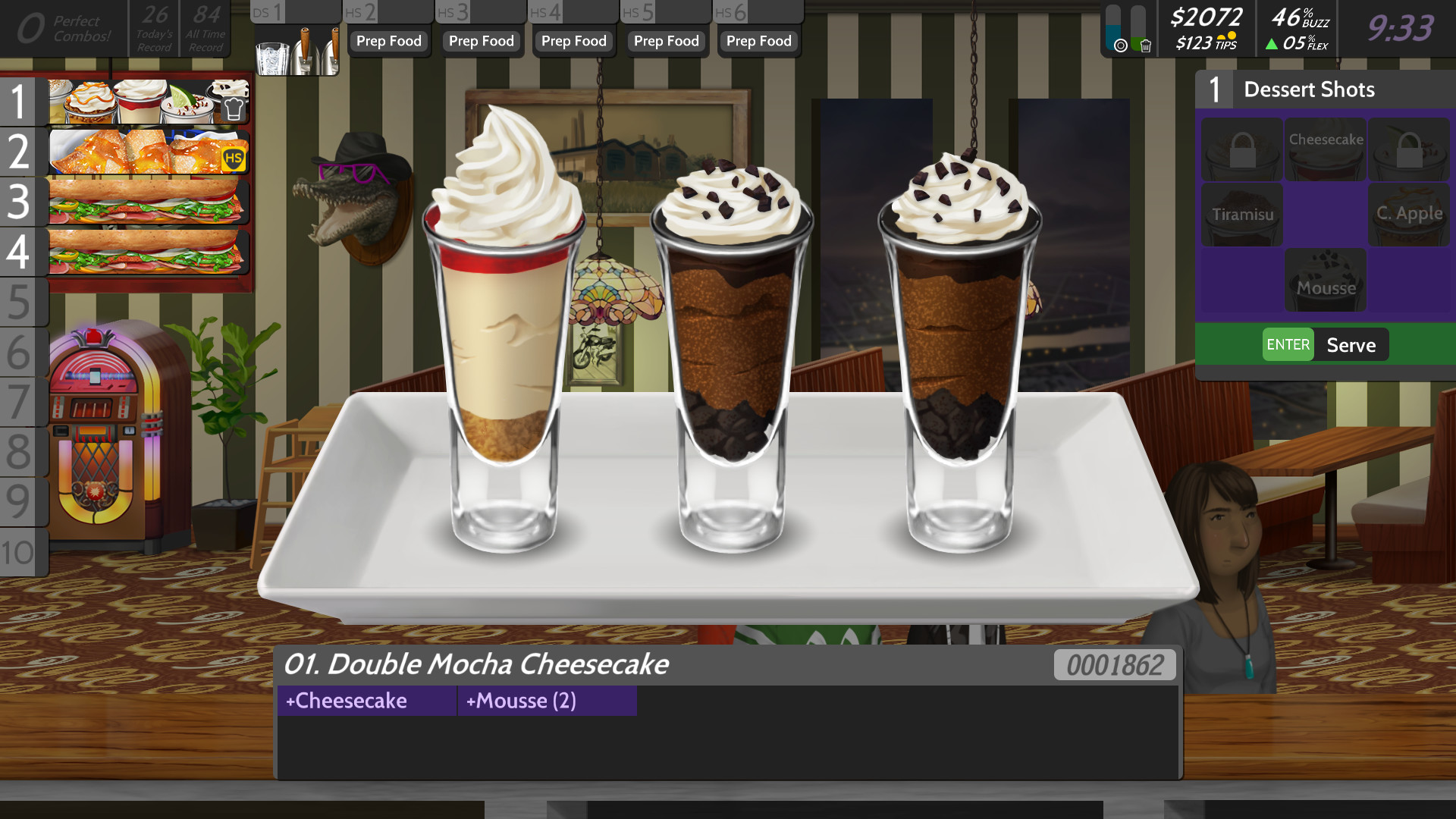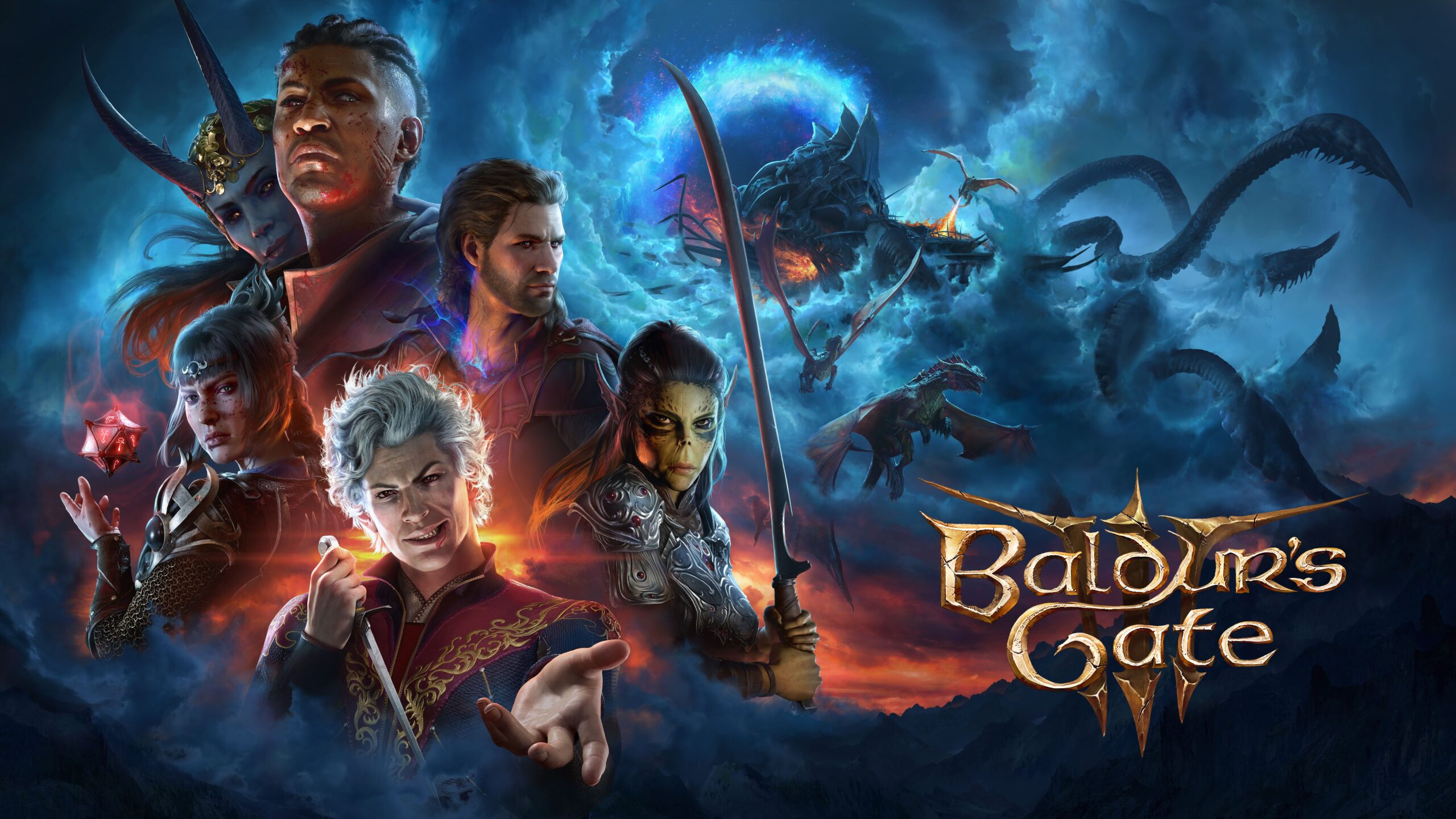
What’s Cookin’?: Cook Serve Delicious 2 Imagines an Ideal Freelance Life
I’ve played the Cook, Serve, Delicious! franchise in reverse order so far, and it’s been somewhat bizarre to see how the overall narrative has shifted as the titles progress. CSD3, for instance, kind of jumps the shark with its hyper-capitalist, apocalyptic food truck road trip. Meanwhile, CSD2 imagines a sort of idyllic freelance/small business life before the shit hits the fan. A Pied Piper’s tune of labor to lure The Chef into what’s next.

In this sequel, The Chef has achieved their dream of running a restaurant in a bustling metropolitan building called Teragon Supertower, alongside dozens of other niche eateries. It’s these other restaurants that make CSD2’s vision of labor so interesting.
Instead of solely managing the titular Cook, Serve, Delicious, in CSD2 you can also work shifts at the other restaurants hosted in the tower. Doing this allows you to increase your experience, both points-wise and in terms of practicing the actual game, and can help you earn more money and medals.
Taking on these shifts is optional, as you obviously still have your own restaurant to run, but those bonuses sure are tempting. In this way, CSD2’s imagining of The Chef’s work is that of a perpetual freelancer. While they own their own business, to truly be successful and continue progressing, they have to keep picking up these side gigs.

Don’t get me wrong, much like in freelancing, working these shifts is often fun. Just like when I’m working on a new feature or brainstorming a new pitch, it can be really exciting to take on work that’s beyond the scope of your day-to-day. But, the thing CSD2 doesn’t account for is the toll working like this actually takes. It’s a game, after all. That wouldn’t be fun.
Instead, CSD2 posits a world where you can simply work and work and work, everyday, with no consequences, only gains. To many a freelancer, myself included, that probably sounds like a pretty ideal set-up. Work can feel good, but not only that, you can wear it as a badge of pride in most circles. Real life gold medals, so to speak.

The reality of that comes through in what the third installment becomes. Instead of the siren’s song of extra money for decorations or more medals to unlock new content, CSD3 dives straight into this lifestyle’s endgame: working at a breakneck speed to appease as many people as quickly as possible. It’s easy to see how we get there though. The Chef worked so hard to have everything literally blown away.
But the thing is, this way of working is only doable in a fantasy. No matter how much we want something, and are willing to work for it, burnout is real and it comes for all of us. We need rest, hobbies, and structural support for things like healthcare and income, rather than the ability to keep working ourselves to the bone.I love playing CSD2, but only because these days I actually have the time to play it.





